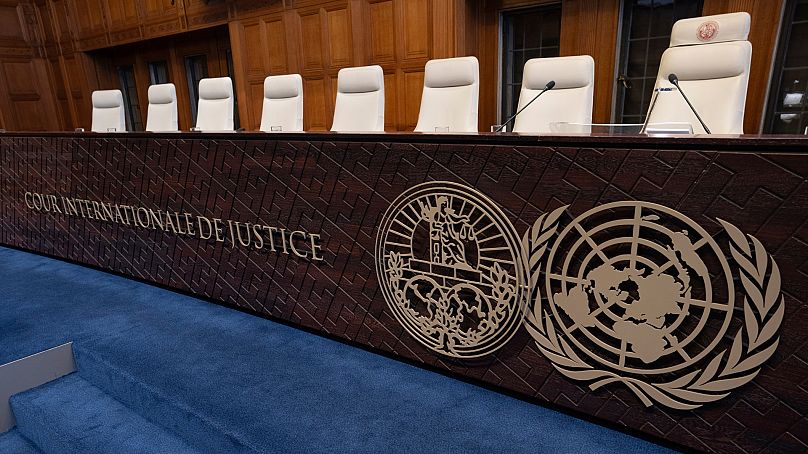The outcome of these hearings could influence rulings in all future climate legal cases.
A date has been set for public hearings at the International Court of Justice which could help define countries' legal obligations to fight climate change.
 ADVERTISEMENT
ADVERTISEMENT
 ADVERTISEMENT
ADVERTISEMENT
The top United Nations court announced on Friday that public hearings will open on 2 December in a landmark case seeking a non-binding advisory opinion on "the obligations of States in respect of climate change."
The UN General Assembly sent the case to the International Court of Justice last year.
Secretary-General António Guterres said at the time that he hoped the opinion would encourage nations "to take the bolder and stronger climate action that our world so desperately needs."
The court said it had received written comments from 62 nations and organisations including the EU, UK, US and Brazil in regard to the case.
What is this landmark climate case about?
The UN court's panel of 15 judges from around the world will seek to answer two questions: what are countries obliged to do under international law to protect the climate and environment from human-caused greenhouse gas emissions; and what are the legal consequences for governments where their acts of lack of action have significantly harmed the climate and environment?
The second question makes particular reference to "small island developing States" likely to be hardest hit by climate change and to members of "the present and future generations affected by the adverse effects of climate change."
It is not yet clear how many countries and organisations will seek to speak at the public hearings or how long they will take. Once they wrap up, judges will likely take months to consider all the legal arguments and are expected to issue their opinions at some point in 2025.
Why is the UN Court being asked to rule on this?
In May, a UN tribunal on maritime law said that carbon emissions qualify as marine pollution and countries must take steps to mitigate and adapt to their adverse effects.
This advisory opinion from the International Tribunal for the Law of the Sea (Itlos) was the first document of its kind to be issued by an international court.
The opinion was requested by the Commission of Small Island States on Climate Change and International Law (Cosis), a group of nine Caribbean and Pacific island nations led by Antigua and Barbuda and Tuvalu.
The advisory stated that greenhouse gases are marine pollution and that countries must protect oceans.
It is also one of three major defining documents of this nature soon expected from some of the highest courts in the world: one from the International Court of Justice, another from the inter-American court of human rights and the one that has already been delivered by Itlos.
Though not legally binding, these documents are highly influential and are likely to set the framework for future climate legal cases.
Courts around the world call on governments to cut greenhouse gas emissions
The case at the world court also follows a number of rulings by other judges and tribunals around the world calling on governments to do more to reduce greenhouse gas emissions.
The Itlos ruling came a month after Europe's highest human rights court said that countries must better protect their people from the consequences of climate change. This landmark judgment could have implications across the continent.
The International Court of Justice is based in The Hague, where domestic Dutch courts made history by ruling that protection from the potentially devastating effects of climate change is a human right and that the government has a duty to protect its citizens.
The judgment was upheld in 2019 by the Dutch Supreme Court.











